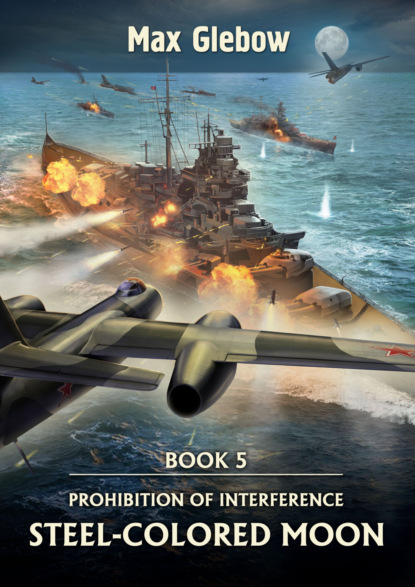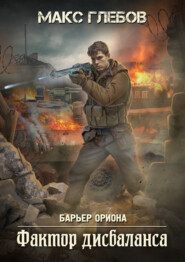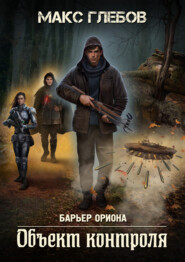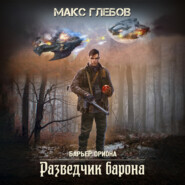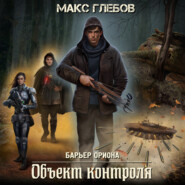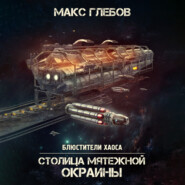По всем вопросам обращайтесь на: info@litportal.ru
(©) 2003-2024.
✖
Prohibition of Interference. Book 5. Steel-colored Moon
Настройки чтения
Размер шрифта
Высота строк
Поля
With the new capabilities I had with an artificial intelligence named Letra, I could quickly provide the Soviet military industry with technology that would enable it to begin producing weapons far superior in its tactical and technical characteristics to all that other earthly nations had at their disposal. However, the question immediately arose: was it worth it? Do I want to end up with a world communist dictatorship led by Comrade Stalin and his loyal associates in the Party? I knew the answer to that question. I didn't. On the other hand, every day of the war cost the country enormous casualties, and I was not prepared to look dispassionately on the deaths of thousands – I was not yet so callous as to consider soldiers and civilians expendable.
What options are left then? Under the current circumstances, my career is almost exhausted. Yes, I was made a hero, known to the whole country, but this fame in itself does not give me much. A man can be a famous polar hero, a popular actor, a fighter pilot or a sniper whose combat score is known to every child, but he won't get any closer to power. Perhaps someday after the war he would be made a deputy – to do what? – to read aloud texts, agreed upon in advance and polished by his senior comrades in a huge conference hall, to become a stuffed shirt… So? Do I need this?
To really change things in this country, one has to become part of its ruling elite, and it is not customary to take outsiders into this closed caste, which is, in general, quite understandable.
Any dictatorship is always built on unconditional loyalty to the leader. This is what is valued in the first place, and only then the professional and personal qualities, organizational abilities and other talents of the applicant for a high public office are evaluated. The Soviet Union, of course, has its own peculiarities – it is very much imbued with Marxist-Leninist ideology, which in many ways replaced the recently lost religion to the citizens of the USSR, but the essence of the totalitarian state, quite recognizable, has not changed much.
Devotion and loyalty! Loyalty and devotion! And no one believes in my loyalty, that's obvious. In my usefulness, yes. But not in loyalty and certainly not in personal loyalty to Comrade Stalin.
Do I really need power over this country? What will I do with it? To conquer the world by force of arms and drag it violently toward a bright future, of which I myself have only a vague idea? Why go to war, though? After all, one can conquer the world economically. This way is harder and longer, but I have time. Stalin is undoubtedly a strong leader, but totalitarian regimes have a very serious flaw: the lack of a clear method of transferring power when the ruler passes away. As a rule, a wild fight for the main seat begins, and often it brings to the top such freaks, that then the whole country shudders in convulsions from their decisions and actions.
“Letra!”
“I'm on the line.”
“Can you prepare the USSR development forecast over the next ten years?”
“I do not know your plans to interfere in the development of Earth's civilization, and without this information, the forecast makes no sense.”
“Let's say I don't interfere at all.”
“Copy. It will take a few minutes. I have to adjust the base model to account for the changes resulting from your emergence on Earth. Basically, you haven't done anything that would make the estimation algorithm inapplicable, so you can count on the standard accuracy of the prediction.”
“Waiting.”
“In what form do you want the result? ”
“A brief voice report. Only key points and major branches without delving into unlikely derivations.”
I picked up the terminology from the real Letra. After meeting her, I was surprised to discover my interest in historical modeling, and we often discussed the development of different human civilizations, trying to find ways to delay their demise.
“Done. May I begin?”
“Go ahead.”
“The first key point is the end of 1942. The dominant branch is the death of Adolf Hitler in an assassination attempt. The consequence is an attempt by the new German government to make peace with England. The expected result is success. In this case, the war of Germany against the Soviet Union will be continued. Background events – the turning point in the war with Japan in favor of the United States and England. The explosive growth of the United States military industry. Death of U.S. President Franklin Roosevelt in an assassination attempt.
The second key point is 1943. The dominant branch is the complete liberation of Soviet territory by the Red Army and the beginning of its march into Europe. The consequences – the entry into the war of England and the United States on the side of Germany. The expected result is the military defeat of the USSR in 1944. The third key point…”
“That's enough. Everything else is clear enough. Are there any alternative scenarios?”
“Of course there are. Hitler's death is almost inevitable, but Roosevelt's death and the United States' entry into the war against the USSR may not be, but the probability is low and the war in Europe will continue anyway under very difficult conditions for the Soviet Union. True, in this case it is possible to conclude peace without serious territorial losses for the USSR.”
“Japan will lose either way?”
“Yes, there is no choice. Only the timing can vary, and that to a small extent. In any case, the U.S. and England have enough forces to fight jointly with Germany against the Soviet Union.”
“Are there any options for a Soviet victory?”
“That was the case before you interfered with the course of history. The USSR could become an ally of Great Britain and the United States in the war with Germany and its allied countries. At the cost of losing a quarter of the population, the Soviet Union had a chance to win this war. With some probability, immediately after the defeat of Germany and Japan, a new war for the division of Europe between the former allies would have begun, but it is likely that a tense and unstable peace would nevertheless have taken place.”
“For how long?”
“For ten to fifteen years, and then there are almost equally likely forks, and the first of them contains the option of nuclear war, but the local civilization still had a fairly high chance of choosing the right path, at least at this key point.”
“So I only made things worse by showing up?”
“Worse for whom? For the USSR, no doubt. If you quit right now, the Soviet Union will be defeated in a war with the Western world united against it, but the chance of World War III for Earth's civilization as a whole will be significantly reduced within the next 30–40 years. There will simply be no power left in the world that can stand up to the United States.”
“But I'm not going to get out of the game, Lethra.”
“I know. You're the one who said it was a condition for making a prediction, so I'm working on it.”
“How to avoid a war of the USSR against the whole world?”
“I have no algorithm for developing a strategy for influencing the civilizations I study. You know as well as I do about the ban on interference. Such programs have never been created, so I'm not your adviser here.”
“But can you at least assess the possible consequences of my planned actions?”
“Only very roughly. This accuracy of prediction would never have suited the Letra whose name I now bear.”
“All right. Then let's play by your rules. Take the following setup: all attempts on Roosevelt's life are prevented. What is the likelihood of the United States going to war against the USSR?”
“60 percent. The president is not omnipotent in this country, and anti-communist forces are very influential. The media is quite capable of setting public opinion in the right way, and Roosevelt may simply have no choice.”
“So we need something to make it impossible for the United States to go to war against the Soviet Union. What could this be?”
“Don't forget, I'm not a human being. I can only make creative decisions when I have a clear algorithm for doing so. In this case, there is no such algorithm. I can only list the precedents from the history I know. A non-aggression pact may prevent entry into war, although such pacts are often violated. U.S. military or economic unpreparedness for war may be an obstacle, but by my calculations, they will have no problem with either in a year or a year and a half. There is also such a variant as the well-established opinion of the population of a country about another state as a reliable ally, thanks to whose help the the victory in a difficult war has recently been won. The U.S. is a democracy, and the government cannot ignore the opinion of its citizens at all. It can manipulate that opinion, but it just can't give a damn about it. And the citizens would probably not like an attack on a staunch ally. In our case, however, this does not apply – the U.S. is not at war with Germany and is not an ally of the USSR. Also, the attack could be stopped by the obvious military-technical superiority of the Soviet Union, but the level of its industrial development would not allow… ”
“Stop. Let me think about it.”
The artificial intelligence was obediently silent, and I was deep in thought, trying to catch the elusive thought. Something flashed through Letra's words that my brain tried to latch on to, but the idea slipped away before it could form.
“Again, slowly repeat the answer to my last question.”
“Don't… forget… that… I… am… not… a… human… being… I… can… only…”
I listened to the above in silence one more time and tried to remember what had made me stop Letra, and at some point the missing element took its place in the shaky construction of the forming idea with an almost tangible click.
“That's enough. Now I need a detailed and persuasive report from you to convince the leaders of the USSR that war with the West is inevitable. Use only those arguments that rely on data available to me officially. I will go to Stalin with this, and I don't want to be asked how I know, how many M3 tanks the Chrysler plant in Warren, near Detroit, will be able to produce next month to within a few pieces.”
* * *
Marshal Shaposhnikov rarely visited Lubyanka, but this time he could not avoid a visit to the Commissar of Internal Affairs. The document, received late at night, literally burned his hands. Boris Mikhailovich was deservedly considered a qualified military analyst and an experienced general staff officer, but the folder clutched in his hand contained materials that went far beyond the purely military sphere, and the decisions that should have been made on their basis were capable of changing the fate of the Soviet Union in the most unpredictable way.
Shaposhnikov did not dare to give these documents to Stalin at once – too much in them required verification, and the Marshal could not conduct such a verification by the General Staff alone. The night spent reading the analyses contained in the folder deprived the Marshal of peace. The course of the war, which seemed very successful to the Chief of Staff, and not only to him alone, suddenly appeared in a completely different light, drawing grave and gloomy prospects. For many hours Shaposhnikov tried to find an error in the inhumanly flawless logic of the report, and found none.
“Hello, Boris Mikhailovich,” Beria stood up to meet the Marshal, who entered his office, with a slight smile, “It's been a while since you visited me. We see each other more at meetings of the Headquarters of the Supreme High Command or in the Kremlin with Comrade Stalin. What was so unusual and urgent that made you come to Lubyanka?”
What options are left then? Under the current circumstances, my career is almost exhausted. Yes, I was made a hero, known to the whole country, but this fame in itself does not give me much. A man can be a famous polar hero, a popular actor, a fighter pilot or a sniper whose combat score is known to every child, but he won't get any closer to power. Perhaps someday after the war he would be made a deputy – to do what? – to read aloud texts, agreed upon in advance and polished by his senior comrades in a huge conference hall, to become a stuffed shirt… So? Do I need this?
To really change things in this country, one has to become part of its ruling elite, and it is not customary to take outsiders into this closed caste, which is, in general, quite understandable.
Any dictatorship is always built on unconditional loyalty to the leader. This is what is valued in the first place, and only then the professional and personal qualities, organizational abilities and other talents of the applicant for a high public office are evaluated. The Soviet Union, of course, has its own peculiarities – it is very much imbued with Marxist-Leninist ideology, which in many ways replaced the recently lost religion to the citizens of the USSR, but the essence of the totalitarian state, quite recognizable, has not changed much.
Devotion and loyalty! Loyalty and devotion! And no one believes in my loyalty, that's obvious. In my usefulness, yes. But not in loyalty and certainly not in personal loyalty to Comrade Stalin.
Do I really need power over this country? What will I do with it? To conquer the world by force of arms and drag it violently toward a bright future, of which I myself have only a vague idea? Why go to war, though? After all, one can conquer the world economically. This way is harder and longer, but I have time. Stalin is undoubtedly a strong leader, but totalitarian regimes have a very serious flaw: the lack of a clear method of transferring power when the ruler passes away. As a rule, a wild fight for the main seat begins, and often it brings to the top such freaks, that then the whole country shudders in convulsions from their decisions and actions.
“Letra!”
“I'm on the line.”
“Can you prepare the USSR development forecast over the next ten years?”
“I do not know your plans to interfere in the development of Earth's civilization, and without this information, the forecast makes no sense.”
“Let's say I don't interfere at all.”
“Copy. It will take a few minutes. I have to adjust the base model to account for the changes resulting from your emergence on Earth. Basically, you haven't done anything that would make the estimation algorithm inapplicable, so you can count on the standard accuracy of the prediction.”
“Waiting.”
“In what form do you want the result? ”
“A brief voice report. Only key points and major branches without delving into unlikely derivations.”
I picked up the terminology from the real Letra. After meeting her, I was surprised to discover my interest in historical modeling, and we often discussed the development of different human civilizations, trying to find ways to delay their demise.
“Done. May I begin?”
“Go ahead.”
“The first key point is the end of 1942. The dominant branch is the death of Adolf Hitler in an assassination attempt. The consequence is an attempt by the new German government to make peace with England. The expected result is success. In this case, the war of Germany against the Soviet Union will be continued. Background events – the turning point in the war with Japan in favor of the United States and England. The explosive growth of the United States military industry. Death of U.S. President Franklin Roosevelt in an assassination attempt.
The second key point is 1943. The dominant branch is the complete liberation of Soviet territory by the Red Army and the beginning of its march into Europe. The consequences – the entry into the war of England and the United States on the side of Germany. The expected result is the military defeat of the USSR in 1944. The third key point…”
“That's enough. Everything else is clear enough. Are there any alternative scenarios?”
“Of course there are. Hitler's death is almost inevitable, but Roosevelt's death and the United States' entry into the war against the USSR may not be, but the probability is low and the war in Europe will continue anyway under very difficult conditions for the Soviet Union. True, in this case it is possible to conclude peace without serious territorial losses for the USSR.”
“Japan will lose either way?”
“Yes, there is no choice. Only the timing can vary, and that to a small extent. In any case, the U.S. and England have enough forces to fight jointly with Germany against the Soviet Union.”
“Are there any options for a Soviet victory?”
“That was the case before you interfered with the course of history. The USSR could become an ally of Great Britain and the United States in the war with Germany and its allied countries. At the cost of losing a quarter of the population, the Soviet Union had a chance to win this war. With some probability, immediately after the defeat of Germany and Japan, a new war for the division of Europe between the former allies would have begun, but it is likely that a tense and unstable peace would nevertheless have taken place.”
“For how long?”
“For ten to fifteen years, and then there are almost equally likely forks, and the first of them contains the option of nuclear war, but the local civilization still had a fairly high chance of choosing the right path, at least at this key point.”
“So I only made things worse by showing up?”
“Worse for whom? For the USSR, no doubt. If you quit right now, the Soviet Union will be defeated in a war with the Western world united against it, but the chance of World War III for Earth's civilization as a whole will be significantly reduced within the next 30–40 years. There will simply be no power left in the world that can stand up to the United States.”
“But I'm not going to get out of the game, Lethra.”
“I know. You're the one who said it was a condition for making a prediction, so I'm working on it.”
“How to avoid a war of the USSR against the whole world?”
“I have no algorithm for developing a strategy for influencing the civilizations I study. You know as well as I do about the ban on interference. Such programs have never been created, so I'm not your adviser here.”
“But can you at least assess the possible consequences of my planned actions?”
“Only very roughly. This accuracy of prediction would never have suited the Letra whose name I now bear.”
“All right. Then let's play by your rules. Take the following setup: all attempts on Roosevelt's life are prevented. What is the likelihood of the United States going to war against the USSR?”
“60 percent. The president is not omnipotent in this country, and anti-communist forces are very influential. The media is quite capable of setting public opinion in the right way, and Roosevelt may simply have no choice.”
“So we need something to make it impossible for the United States to go to war against the Soviet Union. What could this be?”
“Don't forget, I'm not a human being. I can only make creative decisions when I have a clear algorithm for doing so. In this case, there is no such algorithm. I can only list the precedents from the history I know. A non-aggression pact may prevent entry into war, although such pacts are often violated. U.S. military or economic unpreparedness for war may be an obstacle, but by my calculations, they will have no problem with either in a year or a year and a half. There is also such a variant as the well-established opinion of the population of a country about another state as a reliable ally, thanks to whose help the the victory in a difficult war has recently been won. The U.S. is a democracy, and the government cannot ignore the opinion of its citizens at all. It can manipulate that opinion, but it just can't give a damn about it. And the citizens would probably not like an attack on a staunch ally. In our case, however, this does not apply – the U.S. is not at war with Germany and is not an ally of the USSR. Also, the attack could be stopped by the obvious military-technical superiority of the Soviet Union, but the level of its industrial development would not allow… ”
“Stop. Let me think about it.”
The artificial intelligence was obediently silent, and I was deep in thought, trying to catch the elusive thought. Something flashed through Letra's words that my brain tried to latch on to, but the idea slipped away before it could form.
“Again, slowly repeat the answer to my last question.”
“Don't… forget… that… I… am… not… a… human… being… I… can… only…”
I listened to the above in silence one more time and tried to remember what had made me stop Letra, and at some point the missing element took its place in the shaky construction of the forming idea with an almost tangible click.
“That's enough. Now I need a detailed and persuasive report from you to convince the leaders of the USSR that war with the West is inevitable. Use only those arguments that rely on data available to me officially. I will go to Stalin with this, and I don't want to be asked how I know, how many M3 tanks the Chrysler plant in Warren, near Detroit, will be able to produce next month to within a few pieces.”
* * *
Marshal Shaposhnikov rarely visited Lubyanka, but this time he could not avoid a visit to the Commissar of Internal Affairs. The document, received late at night, literally burned his hands. Boris Mikhailovich was deservedly considered a qualified military analyst and an experienced general staff officer, but the folder clutched in his hand contained materials that went far beyond the purely military sphere, and the decisions that should have been made on their basis were capable of changing the fate of the Soviet Union in the most unpredictable way.
Shaposhnikov did not dare to give these documents to Stalin at once – too much in them required verification, and the Marshal could not conduct such a verification by the General Staff alone. The night spent reading the analyses contained in the folder deprived the Marshal of peace. The course of the war, which seemed very successful to the Chief of Staff, and not only to him alone, suddenly appeared in a completely different light, drawing grave and gloomy prospects. For many hours Shaposhnikov tried to find an error in the inhumanly flawless logic of the report, and found none.
“Hello, Boris Mikhailovich,” Beria stood up to meet the Marshal, who entered his office, with a slight smile, “It's been a while since you visited me. We see each other more at meetings of the Headquarters of the Supreme High Command or in the Kremlin with Comrade Stalin. What was so unusual and urgent that made you come to Lubyanka?”





